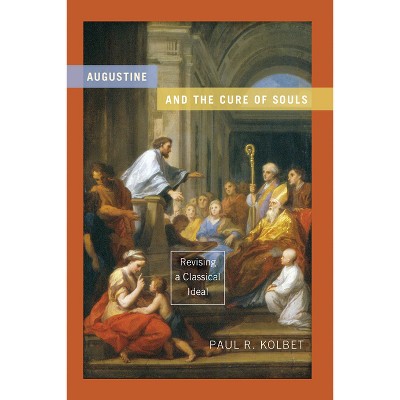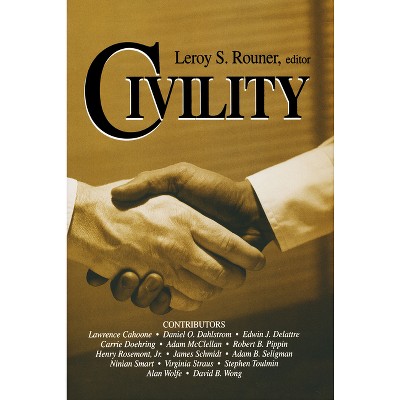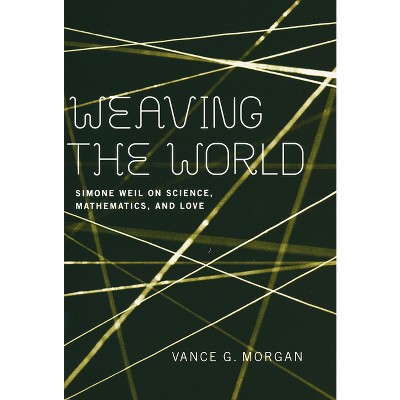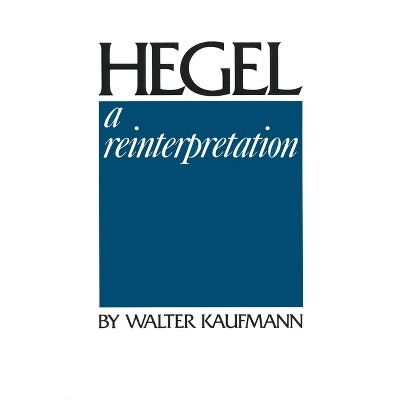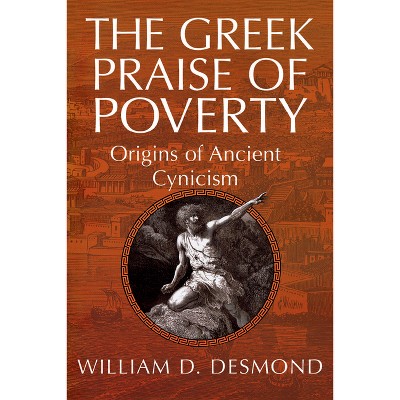Sponsored

Leibniz's Mill - by Charles Landesman (Paperback)
In Stock
Sponsored
About this item
Highlights
- The title of this book, Leibniz's Mill, is taken from Leibniz's famous metaphor in support of a dualism between the mind, or self, and the body.
- About the Author: Charles Landesman is professor emeritus of philosophy at Hunter College and the philosophy program at the Graduate School of the City University of New York.
- 192 Pages
- Philosophy, History & Surveys
Description
About the Book
Landesman claims that dualism must be preferred to materialism. The self cannot be reduced to the body, even although in some ways dependent on it.
Book Synopsis
The title of this book, Leibniz's Mill, is taken from Leibniz's famous metaphor in support of a dualism between the mind, or self, and the body. Given that Descartes constructed the most famous defense of mind/body dualism, the first chapter is a basic exposition and defense of Descartes' arguments, as well as Leibniz's supporting argument. Charles Landesman's basic claim, argued with clarity and philosophical precision, is that dualism is to be preferred to materialism; namely, the self is not reducible to the body, mental processes are not reducible to brain processes, and the idea that the self is a mental substance constitutes the best understanding of all the facts of mental life.
Landesman takes up the central philosophical topics on the nature of the self and the mind in arguing that dualism is a defensible position, even if our mental life is dependent in some respects on the body. Dependency is not the same as identity. Nor should one deny that many bodily events are dependent upon states of mind. He examines our knowledge of other minds, the mind's knowledge of itself, and Descartes' famous argument "I think, therefore I am"; efforts by philosophers such as Hume, Nietzsche, William James, Whitehead, Wittgenstein, and Heidegger to deny the reality of a substantial ego; the mind's way of knowing of the physical world, with its "great deception of sense"; and finally, the teleological structure of human action and the problem of free will. Landesman argues that the dualism of mind and body is perfectly compatible with modern science and that, contrary to the claims of many philosophers, there is no reason to hold that science presupposes a naturalistic or materialistic framework.
Review Quotes
"Charles Landesman writes effortlessly, conveying to readers a rich alternative to today's mainline forms of materialism. This is a book that is comparable to Richard Rorty's Philosophy and the Mirror of Nature or Roderick M. Chisholm's Person and Object: A Metaphysical Study. Like the former, it is historical and substantial, like the latter it is unapologetic in advancing with clear arguments an under-represented position." --Charles Taliaferro, St. Olaf College
"Landesman has no announced interest in God, theology, or grand metaphysical designs in Leibniz's Mill, but is very interested in the philosophy of mind and its relation to science generally. He believes that a clear dualism between mind and body is not only preferable to materialism, but is quite compatible with modern science, which he believes is less precise and authoritative when presupposing materialistic presuppositions." --Journal of Interdisciplinary Studies
"Landesman's recovery of early modern philosophical insights is not only methodological, but also substantive; his conclusion regarding materialism is that is does not stand up to fair and rigorous philosophical reflection for reasons that were quite apparent to the great philosophers of the seventeenth century, primarily Descartes, Leibniz, and Locke." --American Catholic Philosophical Quarterly
"Throughout this volume, Landesman argues against a philosophical/scientific model of materialistic reduction wherein physical aspects control mental activity. . . . While the book makes connections to thinkers ranging from the ancient Greeks to contemporary neurophilosophers, the text remains readable and engaging throughout." --Choice
"While philosophers at times have supposed that certain questions had been settled once for all, it turns out that the supposedly doomed alternative views reappear in new versions and with new rationales. 'The life of philosophy consists not of frequent funerals for dead theories, but of happy celebrations of recoveries from illness.' In the light of this, we can understand how Landesman's book constitutes a challenge to materialism. It does this, not by offering conclusive refutations or conclusive proofs, but by presenting a coherent, well-developed view that represents a viable alternative to the prevailing materialism. So regarded, his effort must be judged a success." --Philosophical Reviews
About the Author
Charles Landesman is professor emeritus of philosophy at Hunter College and the philosophy program at the Graduate School of the City University of New York. He is the author or editor of eleven books.
Shipping details
Return details
Trending Philosophy







